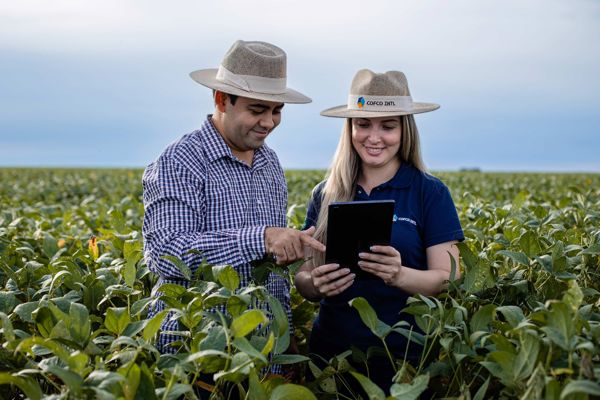
COFCO around the world: South Africa’s deeply rooted business model is key to success
Set among lush, green scenery with an abundance of fauna and flora, the Mpumalanga province in the east of South Africa makes for a perfect holiday destination. But its sub-tropical climate is also well suited for growing some of the country’s main agricultural crops including maize, soy and sorghum. In Mpumalanga’s southern corner, close to the Vaal river, is the town of Morgenzon – “morning sun” in Dutch. It is here, on the Du Toit family’s “Bloukop” farm, that COFCO International first piloted a farming partnership with local producers in 2009.
The cooperation which served since as a model for partnerships with 43 other farms incentivises producers and COFCO International to work together to reduce costs and boost production efficiencies. Working together with COFCO to grow, harvest and merchandize their crops the farmers are also better equipped to withstand unpredictable weather events and frequent currency fluctuations.
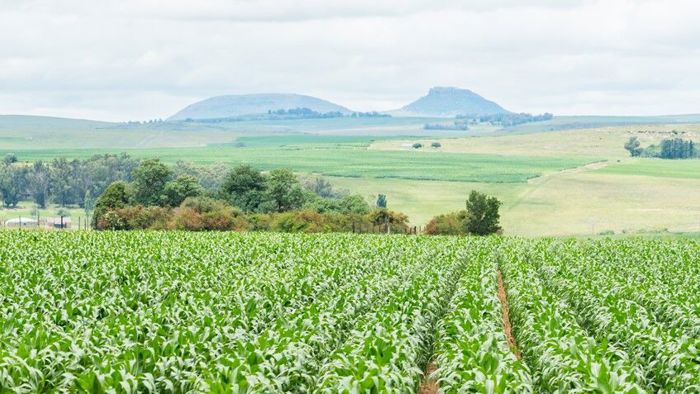
COFCO International has a direct partnership with more than 40 farms around the country which together represent the single biggest crop production unit in South Africa. The cooperation incentivises producers and COFCO International to work together to reduce costs and boost production efficiencies.
A win-win deal
The pilot partnership with the Bloukop farm is still in place today. And the model is replicated on farms throughout the provinces of Mpumalanga, North West and Free State covering a total area of over 70,000 ha producing corn, soybeans, sunflower, and occasionally cotton and wheat.
COFCO International’s farm contractors together represent the single biggest crop production unit in South Africa. Accounting for 15 percent of the company’s origination in South Africa, the partnership model is a key plank in COFCO International’s plans for growth in sub-Saharan Africa.
Johan Steyn, Managing Director for sub-Saharan Africa, says such partnerships are a win-win for both local farms and for COFCO International.
“Thanks to the close relationship, the farmers gain and the company gains,” he says. “We combine the best of both worlds - our expertise and the unique skills of the farmer.”
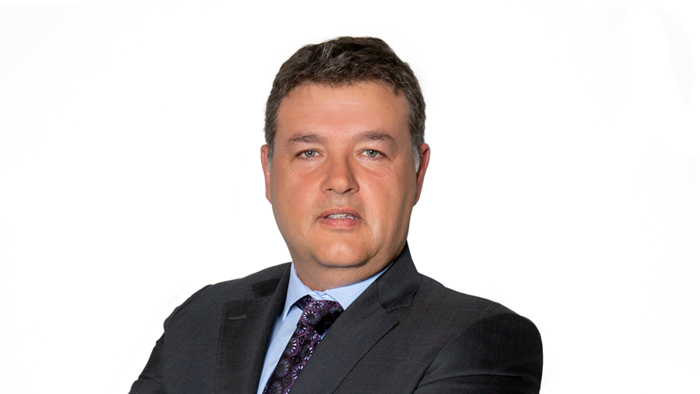
Johan Steyn, COFCO International Managing Director for sub-Saharan Africa
In order to extend the model to other countries in the region the company would eye partnerships with private and public organizations, including input companies, infrastructure providers, and famers.
Main crops
Employing over 800,000 people, South Africa’s agricultural sector is also one of the world’s most diverse. The country’s climate ranges from subtropical to Mediterranean, allowing a very diverse set of agricultural activity to thrive. The country’s extensive farms produce fruit, vegetables, nuts and grains.
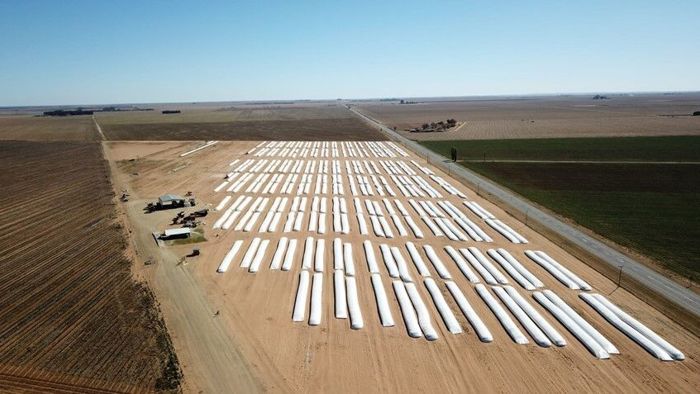
COFCO International is one of the biggest exporters of the country’s maize to international markets with destinations in south-east Asia and the Middle East. It also imports limited amounts from Ukraine and South America.
Maize is the most important grain crop in the country, being both the major feed grain (yellow maize) and the staple food for the population (white maize). As the largest produced field crop, it also represents the biggest portion of COFCO International’s commodity operations in South Africa.
The company is one of the biggest exporters of the country’s maize to international markets with destinations in south-east Asia and the Middle East; it also imports limited amounts from Ukraine and South America.
Most of South Africa’s maize is produced in the summer rainfall area but the agricultural output is highly dependent on the highly variable local climate. The Free State accounts for most production, followed by Mpumalanga and the North West, depending on local weather conditions.”
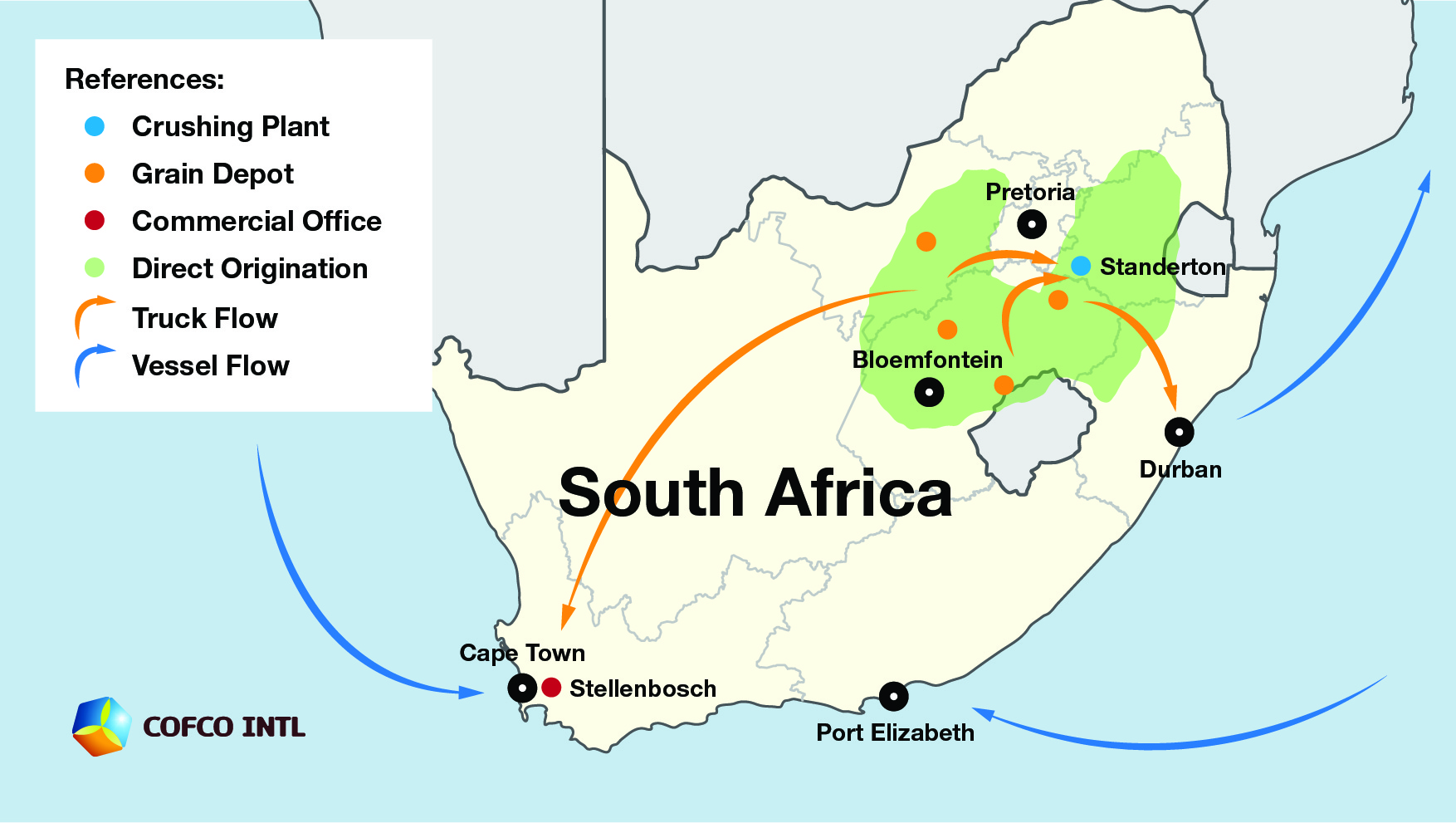
Soy processing
Maize may occupy the largest market share but with soybean production set to increase in coming years, soy is also a critical part of COFCO International’s growth strategy in the country.
The company’s biggest asset in the country, the Standerton soy crushing plant, stands just 50 km from the town of Morgenzon. It processes soy from both COFCO International’s partner farms and third parties to produce oil and soy meal for animal feed. With more than 120 employees, it is the biggest soy crushing facility in South Africa.
Efficiency gains and other improvements led to the plant’s significant growth over the past two years and a doubled processing volume in the past three.
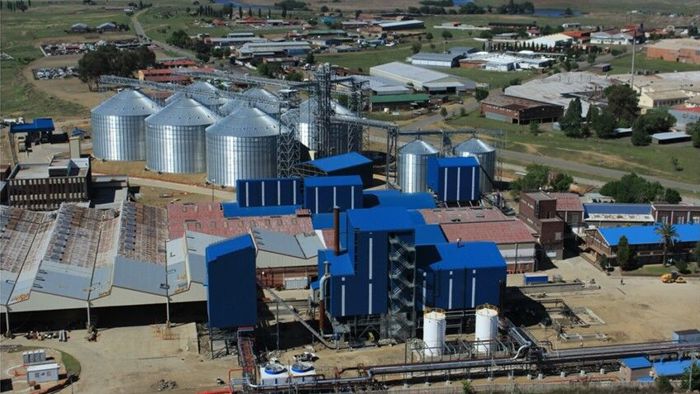
The company’s biggest asset in the country, the Standerton soy crushing plant is also the biggest soy crushing facility in South Africa. It processes soy from both COFCO International’s partner farms and third parties to produce oil and soy meal for animal feed.
Stellenbosch
With farming and processing activities spread in North West, Gauteng, Mpumalanga and the Free State provinces, the Western Cape is the beating heart of the South Africa operation.
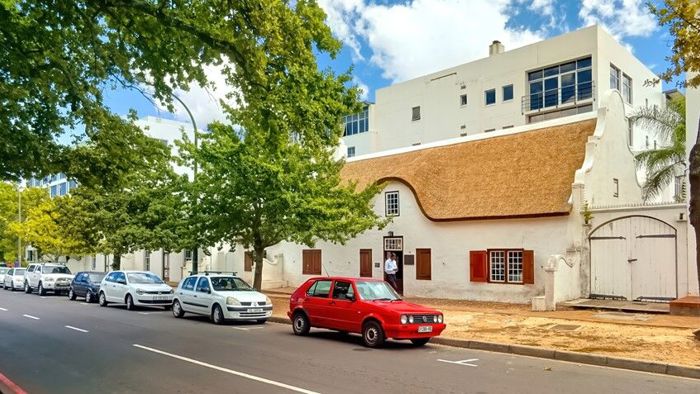
The Western Cape is the beating heart of the South Africa operation. The Stellenbosch office hosts a team of around 90 people responsible for trading, risk management, technology expertise, as well as managing the company’s depots across the country.
The Stellenbosch office hosts a team of around 90 people responsible for trading, risk management, technology expertise, as well as managing the company’s depots across the country.
A team of researchers analyses and predicts crop production, while the trading and merchandising arm balances the domestic market with import and exports, depending on global and local market and weather conditions.
Close connections with the country’s farming communities, an agile management and trading arm, as well as access to both local and global markets is what makes COFCO International a very strong player in South Africa.
“It’s a completely integrated business model,” Steyn says. “From origination, processing, trading and logistics, every single step is fully connected with the other.”
“That’s what is unique about our South Africa operations - the perfect balance which allows us to deliver good performance and win the most important asset - trust”
